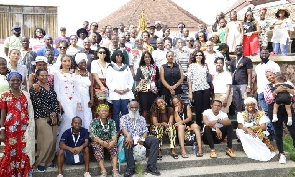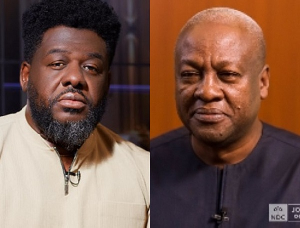Standing up for Africa’s slave trade reparations addresses a historical injustice that has had long-lasting effects on the lives of millions of Africans and their descendants. It is our responsibility to recognize and address this issue in order to foster a just and equitable society.
The history of Africa is intertwined with the history of colonialism, slavery, and exploitation. For centuries, the African people were subjected to the brutality of the transatlantic slave trade, where millions were captured, transported, and enslaved in the Americas. This dark chapter in human history not only robbed Africans of their freedom and dignity but also caused immeasurable suffering and generational trauma to this day.
Top officials in Africa are already welcoming the need for reparations and the return of African arts and artifacts taken from the continent, presently resident in European and American museums and institutions on a continental scale.
In the middle of November 2023, the first Accra Reparation Conference (ARC) co-organized by the African Union Commission and the Government of the Republic of Ghana, was held in Ghana from 14-17 November, 2023, under the theme, “Building a United Front to advance the cause of justice and the payment of reparations to Africans.”
The conference established one of its core motives – creating a Global Reparation Fund that will call for an overdue reparation for millions of Africans enslaved during the transatlantic slave trade.
According to the organisers, the conference was “a big step forward in the demand for reparations,” and they anticipate that it will open up diverse “actionable strategies regarding historical injustices against Africans and peoples of African descent through the slave trade, colonialism, etc.”
Reparations are a form of compensation that is provided to individuals or groups who have suffered from historical injustices or human rights abuses. In this context, it will address the enduring effects of slavery, colonialism, and systemic racism that continue to marginalize and disadvantage African communities across the globe.
Demanding reparations is not something odd or unheard of, there have been documented instances in the past. The most well-known reparations program was the Luxembourg Agreement of 1952, in which West Germany paid reparations to Israel for confiscated Jewish property under Nuremberg laws, forced labour and persecution. Payments to Israel until 1987 amounted to about $14 billion, equivalent to $36.5 billion in 2022.
Another instance was the Japanese Internment Reparations. In 1988, the U.S. government passed the Civil Liberties Act, which formally apologized for the internment, and provided reparations to surviving Japanese Americans who were interned in World War II. The legislation offered a formal apology and $20,000 in compensation to each individual who was interned.
There was also the North Carolina’s Eugenics Compensation Program for victims of forced sterilization. In 2013, North Carolina became the first state in the United States to pass legislation to create a state fund to compensate the living victims of the state-run forced sterilization program. In 2014, more than 200 North Carolina victims were awarded their first compensation payment of approximately $20,000 each.
By advocating for the payment of reparations, we seek to rectify past injustices and create a more equitable future. We can liken it to imprisoning a person for crimes committed decades back. Because somebody has to be responsible for the damage done.
Reparations can take various forms, including financial compensation, access to quality education, healthcare, economic opportunities, and social programs aimed at addressing the disparities that persist to this day.
Building a united front is crucial in advancing the cause of justice and reparations. We need to come together as a global community, setting aside differences of race, nationality, and background, to address this issue collectively. Unity is strength, and by joining forces, we can amplify our voices and make a greater impact.

Oral Ofori (center) with Rocky Dawuni (left) and Cary Sulivan (right) in discussions after one of the sessions at the Accra Reparations Conference (ARC) / © theafricandreamdotnet
Education plays a pivotal role in this endeavor. We must educate ourselves and others about the historical context, the impact of slavery and colonialism, and the ongoing struggles faced by African communities while readily admitting the role of Africa, however minor some Africans think it might be, in the transatlantic slave trade.
By raising awareness, we can foster empathy and understanding among individuals and communities, leading to greater support for the cause and educating our children to avoid them growing up with bitter sentiments while teaching them to appreciate the positive aspects of our cultures and history since no system is perfect.
It is essential to engage in open and honest dialogue. By creating spaces for conversations about reparations, we can challenge misconceptions, dispel myths, and promote a deeper understanding of the issue. These conversations should be inclusive and respectful, allowing for diverse perspectives and experiences to be shared.
Advocacy and activism are vital components of building a united front. We must actively support organizations and initiatives that champion the cause of justice and reparations. Whether through financial contributions, volunteering, or participating in peaceful demonstrations, each of us has a role to play in bringing about change.
By mobilizing our collective power, we can put pressure on governments, institutions, and corporations to address the issue of reparations, which is why we are excited to learn from the Head/Conference Secretariat of the Accra Reparations Conference in the person of Ambassador Amma A. Twum-Amoah that this summit will be held annually.
In addition to activism, we must also engage with policymakers and elected representatives. By advocating for legislation and policies that promote reparations, we can create a legal framework that supports justice and equity. This involves working within existing systems while also challenging the status quo when necessary.
However, change does not happen overnight, and progress may be slow. By remaining steadfast and resilient in our pursuit of justice, we can create a ripple effect that will contribute to a more inclusive and equitable world. Building a united front to advance the cause of justice and the payment of reparations to Africans is a moral imperative. It is our duty to acknowledge the historical injustices endured by African communities and work towards rectifying these wrongs.
Through education, dialogue, advocacy, and sustained commitment, we can create a more just and equitable society for all. Let us stand together in this important endeavor and build a brighter future for generations to come, no contribution is too small.
Opinions of Monday, 20 November 2023
Columnist: Oral Ofori, Contributor















